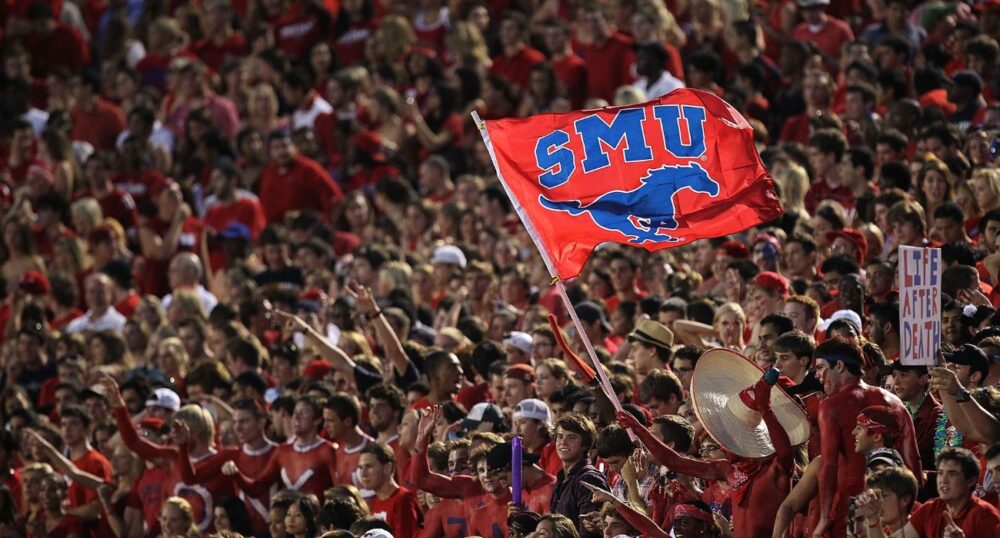Thirty-seven years ago, the SMU football program received a punishment from the NCAA that we may never see again in college sports.
After the discovery of a “slush fund” that boosters used to pay players to come play for the school, the Mustangs were given the “death penalty” — effectively killing the program by removing scholarships and initiating a two-season ban.
According to a 2015 Time Magazine article, it was the second time the Mustangs had been caught. They were also stripped of scholarships and given a two-year bowl game ban in 1985 after offensive lineman Sean Stopperich, who was leaving the program, helped report the infractions to the NCAA.
In response, Bill Clements, the chair of SMU’s board of governors, blamed a group of boosters known as the “Naughty Nine” for the payments and “sullying the university’s reputation.”
Still, instead of ending the practice altogether after the NCAA met to intensify its rules against “cheating,” SMU kept paying the players who already had payment agreements in place until their graduation as part of a “phase out” plan, and that brought the downfall of a rising college football power.
SMU rose to dominance in the early 1980s as Dallas and the surrounding areas grew and local businessmen took an added interest in their college sports teams. From 1981 to 1984, the Mustangs went 41-5-1, asserting themselves as a college football power, winning high-stakes bowl games, and finishing the 1982 season undefeated behind running backs Eric Dickerson and Craig James — known as the “Pony Express.”
However, after Stopperich’s admission, the Mustangs started a downhill slide that did not end for decades. David Stanley, who had been kicked off the team, came forward to WFAA, telling the news station the “slush fund” was still in use, and head coach Bobby Collins and other staff members confirmed it on the air during an incredibly incriminating interview with WFAA that the NCAA could not ignore.
In light of the revelation, the NCAA handed down the first (and only) “death penalty” in college sports — canceling the 1987 season and putting the 1988 season at risk before it too was ultimately canceled.
The punishment set the program back for decades. It went 20 years without a winning season and 40 years without a conference championship. The Mustangs were dropped from the “Power Conferences” when the Southwest Conference disbanded in 1996 and are only now seeing the program recover and get another chance to compete as it enters the ACC this fall.
The issue is increasingly relevant as college sports programs can now pay their players through NIL, although it is not supposed to be used to pay for performance on the field. Still, it raises an excellent question: what could the SMU program have been if NIL had been around then?
While some pundits and experts routinely call for programs to receive the “death penalty” today, it is unlikely we will see it happen again because of the severity of the punishment and how long it took a decimated program to return to a competitive level.

